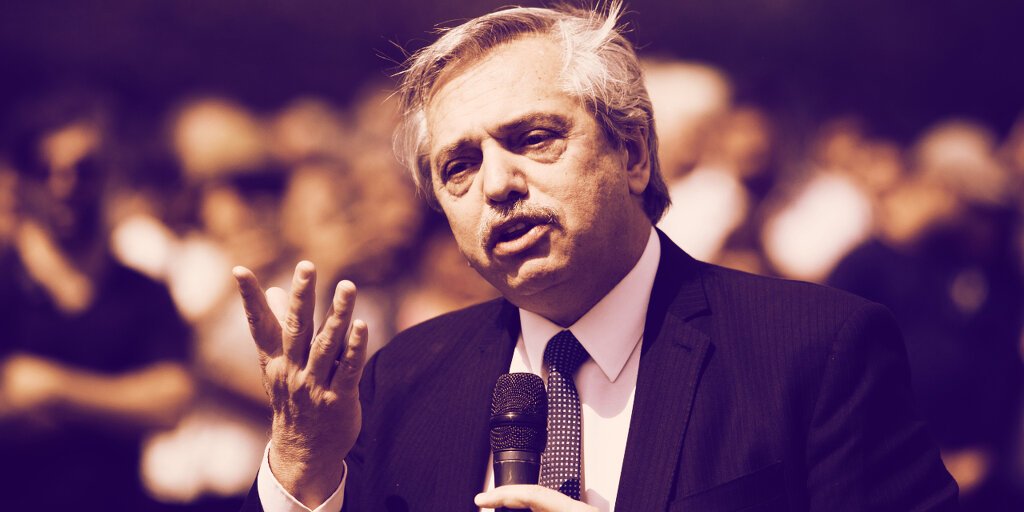The president of Argentina, Alberto Fernandez, has suggested that he is amenable to the idea of crypto playing a larger role in Argentina’s economy, despite his own skepticism.
During an interview on Caja Negra, aired by Filo.news yesterday, Fernandez was asked if he would consider making use of a central bank digital currency, or perhaps even emulate El Salvador and adopt Bitcoin as legal lender. “I don’t want to go too far out on a limb […] but there is no reason to say ‘no,’” Fernandez said. “Perhaps that is a good path to take.”
“They say the advantage is that the inflationary effect is largely nullified,” he explained.
Inflation is one of the most sensitive issues in Argentine politics. Fernandez inherited the second-most “miserable” economy in the world, according to Bloomberg’s World Misery Index, from former president and businessman Mauricio Macri. According to the government’s own data on inflation, $100 at the beginning of Macri’s term would be equivalent to $661 today.
The country also imposes strong currency exchange controls, which caused a boom in the black market for foreign currency—something very different from the Salvadoran reality, where the U.S. dollar is legal tender.
Fernandez, however, tempered his interest in cryptocurrencies like Bitcoin as potential hedges against inflation with a healthy dose of caution.
“It is a global debate, and I must confess that it is a topic [that I approach with] caution. In my case, there is caution because of how unfamiliar it is, and because it is hard to understand how this fortune materializes,” he said, referring to how the value of Bitcoin has increased throughout the years. “Many people in the world have these concerns, and that is why the project, or the system, has not yet expanded [more than it has]. But it is something to consider,” said the president.
Interest in cryptocurrencies has increased considerably in Argentina in recent years, largely because it can be used as indirect exposure to the U.S. dollar, which protects investors in the country from the devaluation of the local currency, the Argentine peso. Beyond just Bitcoin, stablecoins such as DAI are also popular among Argentine traders.
But before Bitcoin enthusiasts get too excited, the Argentine president’s words should be measured against those of the country’s central bank. Earlier this week, the president of Argentina’s central bank, Miguel Pesce, said he believes Bitcoin “is not a [real] financial asset, and does not generate any [lasting] profitability.”






















